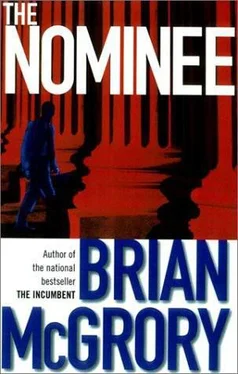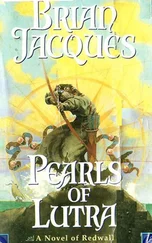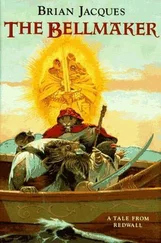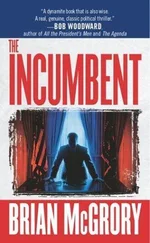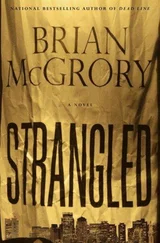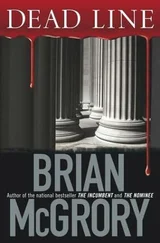I was something of a veteran of crime scenes, having spent too much time at them as a young reporter in the heyday of crack cocaine in the late 1980s and early 90s, when kids — I mean, ten-, eleven-, and twelve-year-olds — were routinely shot dead just for playing in the wrong inner-city street at the wrong time, which could have been anytime. The tone of this crime scene already felt decidedly different, more businesslike and urgent, which made me more panicked.
I began making my way across the parking lot, though headed where, I didn’t know. Didn’t matter. After a few steps, I stopped in my tracks at the sight of the human being I least wanted to see: Luke Travers, a Boston Police homicide lieutenant. Just to put my disdain for this jackass into proper context, I think I’d invite Saddam Hussein out to dinner before I did him.
He spotted me just when I did him. He veered in my direction and walked hurriedly toward me, then a few feet past me, yelling to a pair of uniformed cops nearby, “I thought we had this locked down. How the hell are civilians getting out here?”
He walked back toward me and I said through a clenched jaw, “What the hell’s going on here?”
He stopped a few feet away, his gaze avoiding mine. To be more accurate, he refused to look me in the eye. “Has anyone told you anything?” he asked.
I shook my head. I wanted to make as little verbal contact with him as possible, but I needed information.
His tone became slightly softer, but still official, superior. “Paul Ellis, the publisher, is dead. He’s been shot.”
I couldn’t speak, and even if I could, there was nothing I wanted to say to this asshole.
Travers continued, “I think you’ll want to know some details. One of the pressroom guys found his briefcase sitting here in the lot an hour or so ago.Record security checked his office, and he wasn’t there, so they called the police. A few uniformed guys did a search of the area and found him on the ground over there”—he pointed to his left—“behind one of the Dumpsters.”
He paused again to study me, then continued, “He was shot in the head at least three times, maybe more, at very close range, following a struggle. I don’t have the benefit of an autopsy report yet, but he appears to have died instantly from the bullet wounds. The coroner believes he’s been dead at least twenty-four hours. His wife is on vacation in California, which explains why he wasn’t reported missing last night. His secretary said she assumed he went out to morning meetings today that he neglected to tell her about.”
I turned and walked away from him without another word. The copter still hovered overhead. The small army of investigators still combed through the area. But I felt and saw none of it, as if all my feelings, all my senses, were shrouded in some deep fog of inconsolable gloom. I kept thinking of our conversation the prior morning, of the melancholic look in Paul’s eyes and the heaviness in his voice as he told me that he might lose the newspaper. I kept thinking of him walking away from me, his shoulders uncharacteristically slumped from the gravity of impending defeat.
I turned back toward Travers, who remained in the same spot. He was, I assumed, the senior detective on the case, and as such, was leading the investigation. “I want to see the scene,” I said.
“Can’t,” he replied.
His quick response, his rigid tone, among many other factors, made me want to deck him. I think he sensed this, because he stepped away. He was wearing a perfectly pressed brown suit, a white shirt, and a solid blue necktie. His pale, puffy face was marked by a day’s worth of stubble that glistened in the afternoon sun. Don Johnson he was not, though I would bet that’s exactly the self-image that he had.
Another detective, a rumpled veteran named Tommy O’Brien, came hustling over, his police windbreaker jostling against his beer gut with every step.
“I want to see the scene,” I told O’Brien, an old ally of mine from long ago murder stories.
“Can’t allow it,” Travers repeated, emotionless.
O’Brien looked at me carefully and said, “Jack, you know we can’t. You’re a reporter, an employee, and a friend. Some defense attorney somewhere would have a field day with any one of those three. And believe me, I know what it looks like, and I’m here to tell you that you don’t want to see it.”
We were both quiet for a moment, when he added, “I could use you to identify the body, though, before they wheel it out of here. Would you do that?”
I nodded my head. Then I asked him, “Suspects? Motive? Anyone in custody?” I walked past Travers, ignoring him, as I asked the questions.
O’Brien shook his head. “No one yet, but we will, we will. At first glance, looks like a robbery. He was apparently chased from the parking lot over behind those trucks, where he caught it in the head.” O’Brien cringed, stopped, and said, “I’m sorry, Jack. Where he was shot in the head. He apparently tried to fight the assailant off, and one of our forensic guys is saying it looks like the victim even hid under one of the trucks. It probably happened yesterday afternoon, so there weren’t a lot of witnesses around on a Sunday. We’ll have the whole scenario in a couple of hours.”
As I walked toward the medical examiner’s van, Travers called out to me, “We’re going to want to have a longer conversation with you this evening.”
I turned and looked at him, but didn’t reply.
As we got close to the van, O’Brien said, “Stay right there for a minute, Jack.”
I gazed around slowly as if the world was just coming back into focus. There were men and women walking alone and in small groups every which way like fish in an outsized aquarium. I saw the two guys I had talked to earlier start rolling the gurney toward the Dumpster, which sat behind a row of delivery trucks. I saw several uniformed cops stretching yellow police crime scene tape around the perimeter of the area. A couple of men in trench coats knelt on the pavement measuring tire tracks in the loose gravel. A man and a woman wearing rubber gloves poked around the inside of Paul’s Jeep. In the distance, I could see the surly young cop turning back copy editors and nightside reporters trying to get to work for the evening shift.
I also noticed something missing from this god-awful scene. Here we were in the shadows of the most powerful newspaper in New England, one of the most respected publications in all of America, and there wasn’t a singleRecord reporter, pen in hand, recording the scene for the next day’s editions. Perhaps I should have been thankful, not worried, because any account of this murder would inevitably lead to questions over the possible sale of the newspaper — a prospect that wasn’t known by anyone but a closely held few at that time. But what I really felt, along with the heartbreak, was panic. We could not be beat by any newspaper or television station on a single fact on the murder of our own publisher.
I pulled my cell phone out of my suit pocket, got the city editor on the line, and inquired in as nice a voice as I could muster whether any of our reporters might be done with their afternoon tea and scones and could wander out into the parking lot of their own newspaper to cover the murder of our publisher.
“Jack, we’re trying like hell. The police have every door sealed out of the building. They’re not letting us anywhere near the place.”
“Pretend there’s a fire — or tell the staff there’s a fire sale at Armani. That will get them out the doors.”
I hung up as O’Brien made his way back, gently grabbed my elbow and said, “Come with me.”
I pulled back and replied, “Tommy, unless you allow a couple of our reporters out here, tell Travers that he’s going to be reading everything I know about Paul’s last hours in tomorrow’s paper.”
Читать дальше
